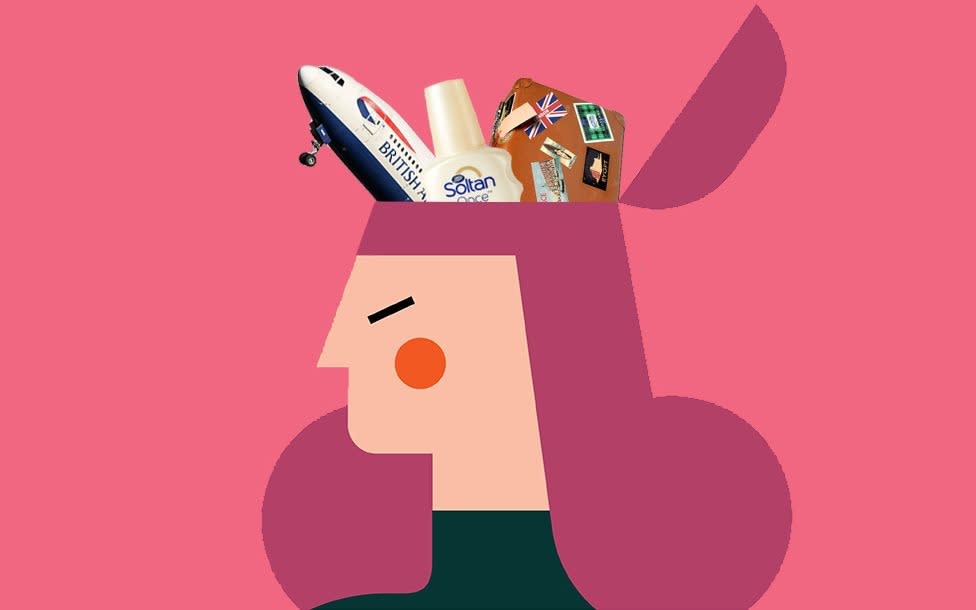Do you have ‘travel anxiety’? Here's how to calm it

Before the pandemic, Sarah-Jane Lewis loved travelling. Her job as a project manager for an internet communications company took her all over the world and she travelled to Barbados, New Zealand, Norway and France, to name a few. During this time, Lewis, 38, says her only worry was “losing her passport” and not being able to find her way around a new place.
However, since the start of the pandemic, Lewis has become increasingly anxious about the prospect of travelling. This summer, she was planning a weekend away somewhere abroad in a private villa with her husband and their children, but instead has decided to stay at home and only visit local places for holidays.
“It seems like a lot of stress for what is meant to be a ‘relaxing’ break away; there's the extra checks, the possibility of spreading the virus, potentially being stuck in a foreign country, or having to quarantine when we return, which would mean the children missed school,” she says.
Travel anxiety is nothing new. Around a century ago, Sigmund Freud described these feelings as “reiseangst”, from the German for “travel fear.” Meanwhile, in 2018, research estimated that over 21 million Britons are scared of flying. But, since the start of the pandemic, Lewis and many like her have developed travel anxiety for the first time, whether that’s over visiting a foreign destination or simply jumping on a train to another part of the UK.
Partly, this could be down to a lack of exposure. With most of us only leaving the house for “essential travel”, and the government’s “hands, face, space” slogan firmly imprinted on our minds, it is little wonder that we feel nervous about life returning to normal again. “Having [previously] built up resilience to travel from daily exposures, reduced exposure during the pandemic, and potential anxiety triggers that may also occur abroad, makes travelling seem even more daunting,” explains Noreen Nguru, a doctor and travel wellness coach. She adds that additional stresses, such as countries jumping from green to amber lists, last minute border closures and the lingering threat of virus transmission and having to seek medical help in another country, contribute to people’s anxiety.
Trains and planes, says Lewis, can be claustrophobic at the best of times with very little air or room to move. “With the added risk of catching or passing on Covid, and having to wear a face mask, my stress levels would dramatically increase," she says. “I know the physical impact to my body when my anxiety levels are high – I don’t sleep, my chest becomes tight and my mind gets foggy – so I’m going to try and avoid these situations at all cost.”
Although the vaccination drive is in full swing, there has been concern in recent weeks around the Indian variant (now renamed the Delta variant) of coronavirus, which currently accounts for more than 90 per cent of cases. Other variants have circulated at different times during the pandemic, which therapist Olivia James believes also plays a part in our anxiety about travelling abroad.
“New variants were named after foreign places: the South African variant, the Brazilian variant, the Indian variant and so on. This made the mental association that ‘foreign equals danger’ and that ‘new danger is coming into the country on planes and ferries’,” she says.
Environmental psychologist Lee Chambers says travel anxiety is often tricky to manage due to the sheer amount of potential variables involved: “Because the anxieties can stem from various areas, from the preparation to travelling and the location, identifying the source is not always the easiest to pinpoint.”
The future of holidays abroad this summer also looks uncertain: only 11 countries are currently on the green list, with Matt Hancock saying it was unlikely that more would be added anytime soon.
Thankfully, there are ways that people who are anxious about travelling can move forward and gain a bit of control back over their lives for when the time comes.
Chambers says the first step is to accept that you might experience some anxiety about travelling after lockdown. It’s only human, he says, as we enter into a time of further uncertainty. He adds that it is best to identify your triggers now so you can address them in good time before you travel: “Planning for scenarios such as getting lost, getting sick or losing documents can give assurance, and [help you to] see that there are solutions to problems that we may encounter.”
Before travel, he adds, it’s important to prioritise your mental wellbeing to avoid any anxiety triggers. A good night’s sleep, a balanced diet and exercise can all give you a more stable platform from which to travel.
“Researching where you will arrive and even making it visual with images can increase familiarity. Travelling with others can provide support, and entertainment or creative activities can help to reduce anxiety through distraction. Ultimately, being well prepared, not feeling rushed and managing stress through planning can make a big difference to how we approach travel, as can writing and documenting the positives and things you enjoy as a result of travelling, keeping them front of mind,” he says.
Nguru agrees, adding that it can help to think of travelling again as an adventure, rather than a chore. “You can even set mini challenges at home like speaking to one new person on your commute to work, going out for dinner alone or trying a new activity to build confidence,” she says. “Distract yourself on the journey by packing good books, headphones, portable games consoles to keep you occupied.”

